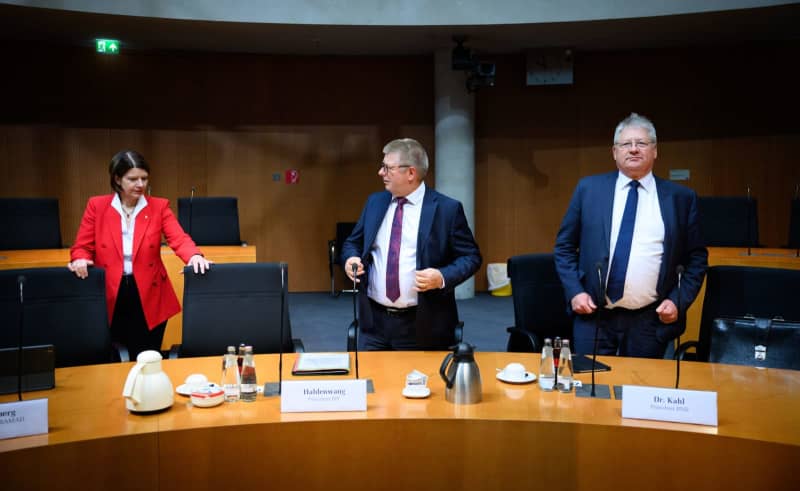In July 2023, a serious incident at a DHL logistics center in Leipzig, Germany, raised alarms among intelligence services, reportedly linked to Russian sabotage intentions. An intelligence report disclosed that a package which arrived from the Baltic region ignited within the facility, resulting in a fire in a cargo container. Thomas Haldenwang, the head of Germany’s domestic intelligence agency (BfV), informed a parliamentary oversight committee that it was sheer luck that prevented the package from catching fire while on a plane, which could have led to a catastrophic aviation disaster. This alarming incident has reiterated concerns about rising threats posed by Russia against Germany, a country President Vladimir Putin has historically viewed as an enemy.
During a public parliamentary session attended by the heads of Germany’s intelligence organizations—including the BfV, the Federal Intelligence Service (BND), and the Military Counterintelligence Service (MAD)—critical warnings were made regarding a surge in Russian espionage and sabotage activities. Haldenwang highlighted that Russian intelligence services have been increasingly aggressive, both quantitatively and qualitatively, in their operations targeting Germany. This escalation reflects a broader geopolitical struggle, where the Kremlin perceives the Western world, Germany included, as adversaries. Bruno Kahl, representing the BND, warned that by the end of the decade, Russia could engage in direct confrontations with Western nations, emphasizing the need for unity and stronger defensive measures among NATO allies to counter such advancing threats.
Kahl’s commentary on the limitations faced by the German intelligence services further underscored the urgency of adapting to these circumstances. He argued that the BND required significantly more operative flexibility to effectively conduct its mandate. Meanwhile, MAD President Martina Rosenberg expressed worries about foreign intelligence agencies attempting to infiltrate and surveil the Bundeswehr, particularly with regard to weapons deliveries to Ukraine and military training plans. This not only paints a picture of heightened espionage efforts by Russia but reflects a broader strategy of creating distrust and insecurity within NATO member states to undermine their unity.
Haldenwang also brought to light pressures faced by dissidents and opposition figures within Germany from several governments, predominantly highlighting the increasing scrutiny from Russia and China. He pointed out instances where merely voicing dissent could attract attention from these foreign intelligence services, revealing the dangerous landscape for political freedom in Germany. Moreover, Haldenwang indicated that Iran’s Islamic Revolutionary Guard Corps (IRGC) was engaging organized crime networks to surveil and target Jewish communities, along with dissenting Iranians. This entwines various global threats faced by Germany from different actors, indicating a multi-faceted challenge to national security.
Domestically, while right-wing extremism continues to pose a notable threat, Haldenwang marked Islamist terrorism as the greatest danger to German society. The clandestine exploits of organizations like ISIS, particularly its Khorasan Province affiliate, show a manipulation of modern social media platforms like TikTok and Telegram to recruit and radicalize youth into extremist ideologies. This digital age facilitates widespread dissemination of propaganda that inspires violent acts, especially when conflicts like the ongoing turbulence in the Middle East reignite fervor among extremist groups. Haldenwang stated that German authorities had preemptively intervened in numerous cases to thwart potential incidents, showcasing ongoing efforts in counter-terrorism measures.
The report came from a session of the Parliamentary Control Panel (PKGr), which holds a critical role in overseeing federal intelligence activities in Germany, meeting usually in a closed format but allowing for public sessions annually to foster transparency. The joint testimony provided by leaders from the three intelligence agencies paints a clear picture of an evolving security landscape exacerbated by foreign adversaries. It underscores a compelling necessity for reforms within Germany’s intelligence frameworks, collectively affirming their resolve in enhancing national security capabilities to safeguard Germany from diverse threats, both foreign and domestic. In summary, the geopolitical climate and surging espionage emphasize the need for vigilance in intelligence operations to preempt potential crises emerging from adversarial actions, particularly in light of expanding threats from countries such as Russia and Iran.

